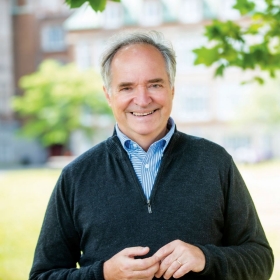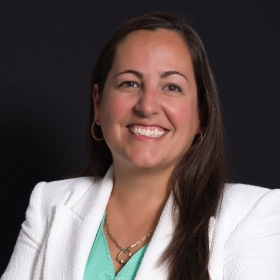As adults, we typically spend around half of our waking hours working. It makes sense, then, that job satisfaction plays heavily into overall life satisfaction. Concordia graduate Jordan Ishak, BComm 07, aims to help improve both.
With a background in marketing and client services, Ishak found his way into the happiness field by accident.
“It all started when I was working for one of my former employers, a communications agency in Paris,” he explains.
“I saw that there were expats scattered around who didn’t feel fully at home.”
Ishak volunteered to organize gatherings where foreign-born employees could mingle with each other and their native French colleagues. “They took off and turned out to be a nice thing for everyone,” he says.
Later, Ishak accepted a new client-services position at another Parisian company, Havas Health & You. This time, partly due to his prior event-organizing efforts, he also had an additional title: chief happiness officer (CHO).
More than 5,000 companies now have CHOs, according to LinkedIn, a figure that doesn’t account for titles such as director of well-being. It’s a trend that’s probably related to research linking happier workers to better retention, fewer sick days and higher productivity.
Taking on his current role was an eye-opening experience, says Ishak. Early on, he sat down with every employee for a confidential interview about what was and wasn’t going well for them.
“I quickly learned that although people appreciate fun events, other needs are usually more important,” he recounts.
“Happiness often hinges on day-to-day interactions with your manager and your immediate team. For example, how do managers support their people? Do they give them the freedom to make decisions for themselves? Or do they micromanage them?”
Ishak soon plans to launch his own company and become “a full-time happiness man” providing training to businesses. His flagship course will be about becoming the type of leader that people want to work for. “It will cover gaining personal insight, developing practical management and coaching skills, putting your people at the heart of what you do and creating a supportive work environment that enables a highly productive team,” he explains.
To workers themselves, Ishak recommends doing some extra investigating during a job search.
“Zoom interviews are great, but if you can meet your potential manager and team face-to-face, that could help to give you a better idea of what the job will be like,” he says. “You could also reach out to people who’ve had the role that interests you and ask them questions about the company and its culture.”
The third act
How does our sense of well-being change as we transition from working life into retirement?
Getting older brings its fair share of challenges, but it can also bring perspective and resilience, says Gillian Leithman, whose research at Concordia focuses on aging and retirement.
“Just by virtue of having been on the planet for 60, 70 or 80 years, seniors tend to have more practice navigating difficult situations,” she notes.
Even so, it’s common to struggle after stepping away from full-time employment for good.
“So much of our identity is wrapped up in what we do for a living,” observes Leithman. “If you’ve been caught up in your career to the point where you’ve neglected other arenas of life — relationships, hobbies, interests — leaving it can be a really jolting experience.”
Leithman runs Rewire to Retire, a training and coaching business that helps people prepare for life after work. One of her tips is to reframe this stage: “Instead of focusing on what you’re retiring from, think about what you’re retiring to,” she says.
She also suggests planning to do more than just relaxing. Volunteering, working part-time or engaging in a passion project are all ways to positively direct energy and create a sense of meaning. Some seniors might even enjoy their job so much that staying on full-time would suit them best.
“Retirement becomes lopsided for a lot of people,” Leithman says. “The idea is that you worked and worked, and now you’re going to play. Arguably, we should aim for a better balance between work and leisure at every age.”
When it comes to relationships, older people tend to take a quality-over-quantity approach.
“For young adults, there’s often a focus on learning and developing skills and larger social networks for the future,” explains Leithman. “Then, starting around midlife, there’s a switch where being around people who contribute positively to your life becomes really important. Research has borne out that older people will frequently let their less significant relationships deplete and invest more in those they find the most positive and rewarding.”
The perpetual persuit



 “We should aim for a better balance between work and leisure at every age, Gillian Leithman,” BSc 00, MSc 05, PhD 16.
“We should aim for a better balance between work and leisure at every age, Gillian Leithman,” BSc 00, MSc 05, PhD 16.
 “Everybody has a certain amount of stress in their life. Which factors minimize the negative effects of these experiences?” asks William Bukowski.
“Everybody has a certain amount of stress in their life. Which factors minimize the negative effects of these experiences?” asks William Bukowski.
 “Happiness [at work] often hinges on day-to-day interactions with your manager and your immediate team,” says Jordan Ishak, BComm 07.
“Happiness [at work] often hinges on day-to-day interactions with your manager and your immediate team,” says Jordan Ishak, BComm 07.
 “I want to empower people to better understand themselves,” Junie Hanck, BSc 04
“I want to empower people to better understand themselves,” Junie Hanck, BSc 04